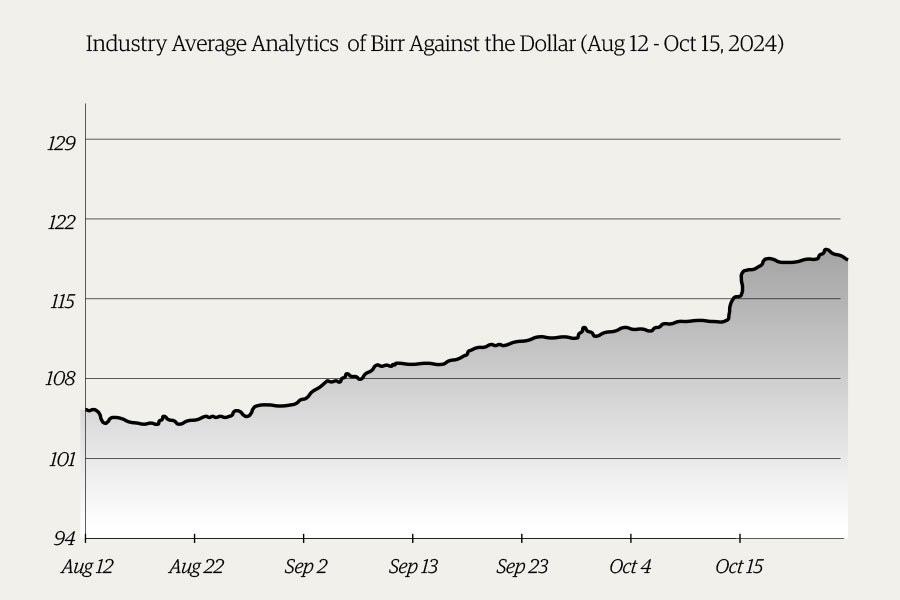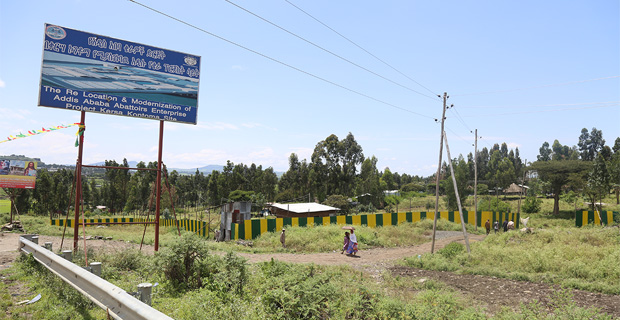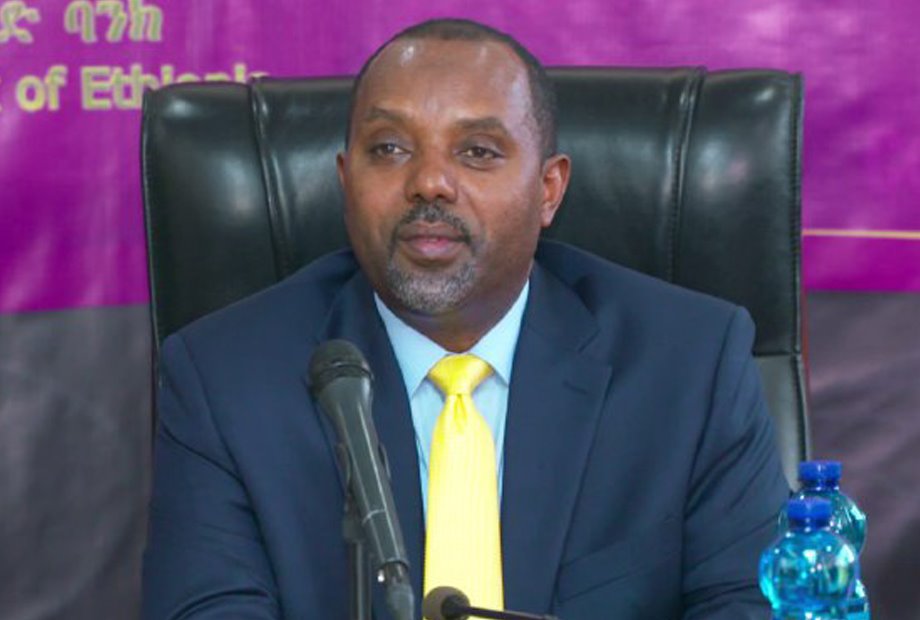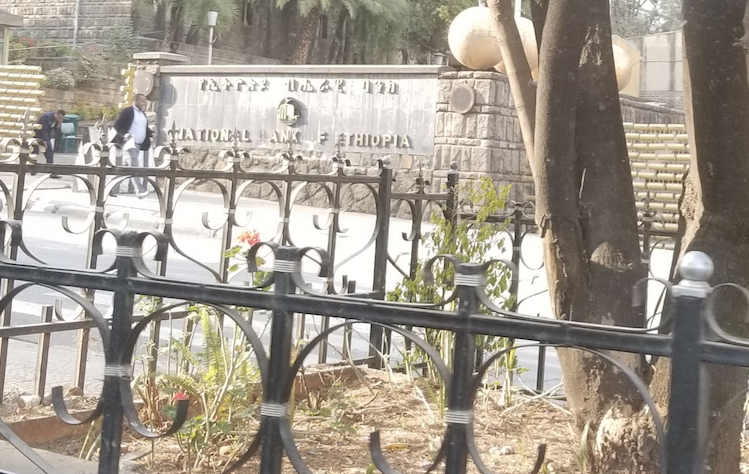
Money Market Watch | Oct 27,2024
May 7 , 2022
By BERSABEH GEBRE ( FORTUNE STAFF WRITER )
Executives of the Ethiopian Shipping & Logistics Services Enterprise (ESLSE) plan to apply for loan deferment for two years in their effort to acquire two more vessels. Loan deferment allows them to temporarily suspend making payments on principal loans and, in some cases, interest.
The move comes following demands from the Commercial Bank of Ethiopia (CBE) to submit proof of payment for a 67 million dollar loan the Enterprise had applied for six months ago. The loan requested by the Enterprise, which operates a fleet of nine dry vessels and two oil tankers, may not be able to cover all of the financing required to acquire the ships with a load capacity of 65,000tn each.
Representatives of the CBE were unavailable for comment.
The Enterprise will cover the balance from revenues it generates, according to Roba Megersa, chief executive officer (CEO).
ESLSE generated 726 million dollars in revenues in the last financial year.
Accessing the investment in a foreign currency will be a crucial step toward commissioning the building of the ships.
“Although we're getting positive responses, our loan request is dragging due to the foreign currency shortage," Roba told Fortune.
The seven heavy-lift vessels, each with a 28,000tn load, were built by Huanghai Shipbuilding Co. at an average cost of 32.5 million dollars each. The oil tankers cost 37 million dollars. “Assosa’’ and “Bahir Dar’’ – the two latest additions to the fleet – were delivered in 2013 at 72 million dollars.
The Enterprise has been working to facilitate the procurement of two vessels since last year. Over 20 firms responded to its international tender, half of which submitted offers before the deadline in June 2021. Two China-based companies and an Emirati supplier were shortlisted for financial offers.
One of these, New Dayang Shipbuilding Co., a subsidiary of Sinopacific Shipbuilding, had filed for bankruptcy in 2016 following a decade of financial troubles for its parent company, Evergreen Holding Group. Incorporated in 2016, the Chinese government owns Nantong Xiangu Shipbuilding & Offshore Engineering. Based in Dubai, Al Meriyan International FZE represents the Chinese Jiangsu Yangzijiang Shipbuilding Group, a shipbuilding and marine engineering manufacturing company.
Roba and his team expect the selected shipbuilder to deliver the vessels in two years. The acquisition of the vessels is expected to ease the shortage of slots for containers the Enterprise is facing. Its fleets handle 17,000 containers a month, a mere fifth of the country's import and export trade volume. The Enterprise depends on a slot chartering and leasing arrangement with global shipping companies such as Maersk Line, Mediterranean Shipping Company (MSC), and Evergreen Marine.
Industry players foresee growing foreign trade will mean that the planned procurement comes too late too little to deal with the crisis dogging the logistics sector in the short term. The vessels will not be available for two years.
Solomon Zewdu has worked as a shipping and freight forwarding agent for two decades. He urges the Enterprise's executives to act quickly to secure additional slot leasing agreements to lessen the problems in the meantime. He struggles to get slots for 35 containers.
Solomon says he has no choice but to wait two more months for the goods to be picked up while his clients endure staggering costs in warehouse fees.
“The waiting time is even longer for imported commodities,” says Fitsum Tilahun, general manager of Honest Trade Enterprise Plc, a logistics services provider incorporated 21 years ago with an initial capital of three million Birr.
Part of the problem is a global shortage of containers, which began two years ago in the wake of the COVID-19 pandemic.
Last year, Ethiopia imported 12.4 million tonnes of commodities and the 3.7 billion metric tonnes of petroleum products valued at 72.6 billion Br. It constituted a massive volume compared to the 1.2 million tonnes of goods shipped abroad. The Enterprise acquired close to 6,000 containers, bringing its total stock to around 10,000. It spent an average of 7,000 dollars for 40ft containers and 4,000 dollars for 20ft each.
The measure was taken in response to outcries from importers, who complained their goods had been stranded at various ports due to container shortages. However, the Enterprise has continued to grapple with shortfalls in containers number.
Fitsum believes the acquisition of the vessels will have little effect in addressing the issues the Enterprise has recently been facing.
“The global shipping crisis demonstrated that no good can come out of state monopoly," said Fitsum.
Last year, the federal government announced that five private operators would be allowed to engage in cargo shipments under Free on Board (FoB) terms. The initiative is yet to take hold.
PUBLISHED ON
May 07,2022 [ VOL
23 , NO
1149]

Money Market Watch | Oct 27,2024

Fortune News | May 25,2019

Sunday with Eden | May 08,2021

Covid-19 | Mar 19,2020

Fortune News | Mar 07,2020

Dec 22 , 2024 . By TIZITA SHEWAFERAW
Charged with transforming colossal state-owned enterprises into modern and competitiv...

Aug 18 , 2024 . By AKSAH ITALO
Although predictable Yonas Zerihun's job in the ride-hailing service is not immune to...

Jul 28 , 2024 . By TIZITA SHEWAFERAW
Unhabitual, perhaps too many, Samuel Gebreyohannes, 38, used to occasionally enjoy a couple of beers at breakfast. However, he recently swit...

Jul 13 , 2024 . By AKSAH ITALO
Investors who rely on tractors, trucks, and field vehicles for commuting, transporting commodities, and f...

Sep 13 , 2025
At its launch in Nairobi two years ago, the Africa Climate Summit was billed as the f...

Sep 6 , 2025
The dawn of a new year is more than a simple turning of the calendar. It is a moment...

Aug 30 , 2025
For Germans, Otto von Bismarck is first remembered as the architect of a unified nati...

Aug 23 , 2025
Banks have a new obsession. After decades chasing deposits and, more recently, digita...